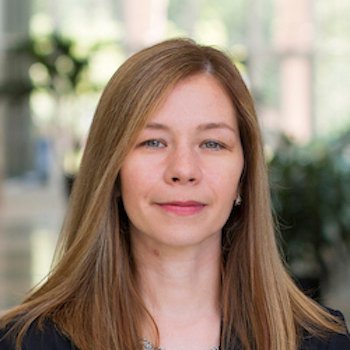As a terminologist, I study the language we use as a company—from the terms used in technical product data and creative marketing materials to the translations that reach our customers around the world.
Language helps us build relationships and forge connections. But it can also create barriers to our sense of belonging. The words we use in conversation and in our technical language can and do reflect the biases held in our culture—biases related to race, ethnicity, culture, gender, religion or perspective.
Language is not neutral, not even in science and technology.
In June 2020, reexamining our use of terminology across functions took on a new urgency. The death of George Floyd ushered in a public, nationwide (and global) outcry about systemic racism and its impact on us all. In business, companies began speaking out about systemic racism. Rockwell Automation was one of those companies, and we remain committed to diversity, equity and inclusion and to changing—for the better. Inclusive language—the words we use with our customers, our partners, our employees and our communities—is part of that change.
Inclusive language at Rockwell Automation
Inclusive language or terminology has been a consideration for many years – for terminologists like me and for this company.
“The fact is, this is not a completely new concept to Rockwell Automation and our language has been changing over the years,” says Jürgen Weinhofer, Vice President of Common Architecture & Technology at Rockwell Automation. “For example, in late ‘90s and early 2000s, we used the term “Man-Machine Interface” (MMI) everywhere. Today, everybody refers to it as “Human-Machine Interface” (HMI). Most junior engineers would not even know what an MMI is. Our current initiative builds on our past efforts and is one of many activities we are undertaking to build a more diverse and inclusive company.”
More recently, the replacement of “they” for the traditionally gendered pronouns “he” and “she,” for example, shows a widespread acceptance of gender-neutral language. And terms that were accepted a generation or two ago may not be now, leading to perspective-challenging discussions around the family dinner table and in the workplace.
While it might be frustrating to change and update references that were used for decades, it’s a reminder for us all to be open to evolving our language to reflect the changes in our society and culture.
Think of the two terms, “master” and “slave.” These terms permeate the engineering domain, but only recently came into focus across many tech companies because of their association to slavery. Other terms, such as “segregate” and “man hours,” have similar challenges when it comes to inclusive communication.
Do we need to use terms like “kill” or “product infant mortality” to convey technical information accurately? No. Ours is a rich language—and there are multiple ways to express the same idea. In fact, we’ve found that alternative terms can remove ambiguity that was inherent to the original terms and help us to be more precise in the message we want to convey.
Launching the Adopting Inclusive Terminology initiative
In August 2020, Rockwell Automation formally launched the Adopting Inclusive Terminology initiative. The goal of this initiative is to create unified guidance for identifying, replacing and avoiding offensive and racially biased language in our products and content.
This initiative brought together a cross-functional group from product management, product development, operations, standards, marketing and technical communications, led by Raj Govindaraj, System Architecture Manager. This group reviews the non-inclusive terminology that exists in our customer-facing content, products, standards and communications.
The internal response to, and support for, this initiative has been incredible. That so many employees are passionate about making sure that Rockwell is a leader in inclusive terminology speaks volumes about our commitment to both inclusion and innovation. But we acknowledge that change is difficult: not everyone will see the need for it in the same way.
This initiative is not just a project; it is a conversation where want to listen to everyone’s perspectives—a conversation with our employees, partners and customers. This conversation is not easy at times, but it is exactly what will help us continue to build a more inclusive culture.
“I am proud to work for a company that wants to lean into leading this complex change in how our products, and the literature about them, represent our values and commitment to diversity and inclusion,” says Raj Govindaraj. “It is equally gratifying to see how many of my colleagues are eager to engage in this conversation and contribute to our journey with real passion.”
So, what’s changing?
Our criteria for changing terminology include terms that are profane or derogatory; terms that contain unconscious bias in relation to race, ethnicity, age, gender, religion, sexual orientation, gender identity, health or abilities, socioeconomic status, or political views; and terms that evoke violent metaphors.
Terms that we are changing include man hours, senior moment, blacklist, whitelist, black hat hacker and white hat hacker.
Terms like “master” and “slave” are still under review and are the hardest, albeit most critical to change. These terms have multiple, different meanings in the world of industrial automation and are embedded in software and firmware code, as well as technical and marketing content. The many meanings make the global find-and-replace impossible because of the high risk of introducing errors or confusing alternatives. In addition, some of the uses of these two terms are closely aligned with technical standards, such as IEEE, IEC, and ODVA. We are collaborating with standards organizations and seeking their recommendations to make sure that our changes are consistent and accurate. We know that this change is going to take a lot of time and effort.
While we’ve made decisions about changing certain terms, the next step—implementing those changes in our products—is both significant and complex. With thousands of products and the millions of words that describe them, there are so many dependencies between products, between products and user assistance content and between ours and our partners’ content and also dependencies to standards. It’s a massive undertaking to scale and sync them all, but we are committed to it.
We will deliver on our plans to help cascade change into the worlds of automation, technology and software. And aligning with our larger network of partners, standards organizations and customers is key to making sure we are being clear, consistent and ultimately inclusive.
Rethinking how we see the world—and how the world sees us
When it comes to inclusion, we are also considering the bigger picture. This initiative is about far more than replacing words—it is about rethinking, looking for nuances and using language in a mindfully inclusive way. We don’t want to just check a box. By adopting a global lens, we want to rethink how we see the world and how that world sees us.
This is a journey, and it’s the one that Rockwell is helping lead for our industries and our customers. We are acknowledging our history, learning from the past and letting that experience shape us into better people and a better, more inclusive company.
This initiative reflects our company's commitment to diversity, equity and inclusion—and it’s something we are proud to be a part of.


